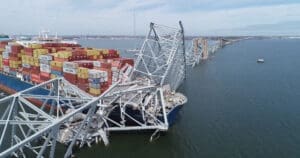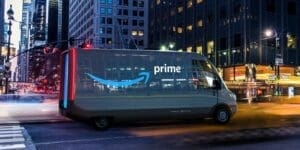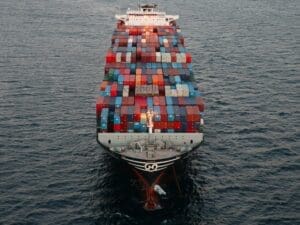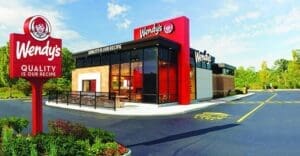 In the early morning hours of April 26, at approximately 1:35am, a cargo ship leaving Baltimore Harbor struck the Francis Scott Key Bridge, triggering a catastrophic collapse of the 1.6-mile-long span. The collapse sent vehicles and people plunging into the water. According to a Coast Guard memo, a harbor pilot and an assistant aboard the cargo ship reported the power issues that prompted multiple alarms on the bridge of the vessel and loss of propulsion. The end result of the loss of propulsion was the ship crashing into the bridge. Had the crash occurred a few hours later at the height of the morning commute the bridge would have likely been packed with commuters. The bridge is part of the heavily traveled Interstate 695 linking Baltimore to Washington, D.C. An estimated 11.5 million vehicles cross the bridge annually, or about 30,000 per day, according to the Maryland Department of Transportation. The ship alerted authorities of the power failure, and the bridge was shut down to traffic, likely saving many lives. Officials said the container ship was moving at a speed of 8 knots, or about 9 mph, when it struck the bridge. They said the disaster could have been much worse had authorities not stopped cars from going onto the bridge. And now on to this week’s logistics news.
In the early morning hours of April 26, at approximately 1:35am, a cargo ship leaving Baltimore Harbor struck the Francis Scott Key Bridge, triggering a catastrophic collapse of the 1.6-mile-long span. The collapse sent vehicles and people plunging into the water. According to a Coast Guard memo, a harbor pilot and an assistant aboard the cargo ship reported the power issues that prompted multiple alarms on the bridge of the vessel and loss of propulsion. The end result of the loss of propulsion was the ship crashing into the bridge. Had the crash occurred a few hours later at the height of the morning commute the bridge would have likely been packed with commuters. The bridge is part of the heavily traveled Interstate 695 linking Baltimore to Washington, D.C. An estimated 11.5 million vehicles cross the bridge annually, or about 30,000 per day, according to the Maryland Department of Transportation. The ship alerted authorities of the power failure, and the bridge was shut down to traffic, likely saving many lives. Officials said the container ship was moving at a speed of 8 knots, or about 9 mph, when it struck the bridge. They said the disaster could have been much worse had authorities not stopped cars from going onto the bridge. And now on to this week’s logistics news.

 Earlier this week, Amazon announced that it is rolling out same-day delivery of prescription medications in New York City and the greater Los Angeles area. The prescriptions are offered via Amazon’s online pharmacy service, which launched in 2020. Amazon Pharmacy, born out of the company’s 2018 acquisition of online pharmacy PillPack, allows customers to order prescription medications for home delivery, with free shipping for Prime members. To speed up deliveries, Amazon said it’s using new, smaller facilities, stocked with the most common prescription medications for acute conditions. The locations are equipped to process a prescription “within a matter of minutes rather than hours or days,” the company said. San Bernardino, Riverside and Anaheim, which are all in the LA area, are eligible for same-day prescription deliveries starting Tuesday. The broader LA metro area will be up and running in April. The company plans to add more than a dozen other cities by the end of the year.
Earlier this week, Amazon announced that it is rolling out same-day delivery of prescription medications in New York City and the greater Los Angeles area. The prescriptions are offered via Amazon’s online pharmacy service, which launched in 2020. Amazon Pharmacy, born out of the company’s 2018 acquisition of online pharmacy PillPack, allows customers to order prescription medications for home delivery, with free shipping for Prime members. To speed up deliveries, Amazon said it’s using new, smaller facilities, stocked with the most common prescription medications for acute conditions. The locations are equipped to process a prescription “within a matter of minutes rather than hours or days,” the company said. San Bernardino, Riverside and Anaheim, which are all in the LA area, are eligible for same-day prescription deliveries starting Tuesday. The broader LA metro area will be up and running in April. The company plans to add more than a dozen other cities by the end of the year.
In other Amazon news, the company says it helped stop 7 million counterfeit products from entering its fulfillment centers and reaching consumers last year– one million more than it did in 2022. Amazon estimates it spent about $1.2 billion on anti-counterfeit efforts last year. That same year, it saw a 12 percent bump in annual net sales hitting $574.8 billion. It also said it now has 15,000 employees tasked with the issue, roughly 1 percent of its 1.5 million-strong workforce. In addition to stopping fake products from getting into the U.S., Amazon’s efforts include preventing people from making accounts unless they have verifiable identification, using AI to scan images and product listings for red flags and working with law enforcement around the world to find and prosecute counterfeiters.

 Walmart Canada is piloting an automated receiving solution. The Canadian subsidiary of Walmart is introducing material handling robotics and automation technologies into its distribution network, kicking things off by piloting an automated receiving solution at its regional distribution center (RDC) in Calgary, Alberta. Walmart first announced its next-gen fulfillment center model in 2022. The centers feature an automated, high-density storage system that, among other benefits, allow the retail giant to double the number of customer orders it can fulfill in a day. Now, Walmart is also implementing robotic automation in its Canadian distribution network, with goals including making the process of getting products from trailers into the facility 90% faster than doing it manually in an effort to boost productivity, reduce strain on associates, increases shipping accuracy, and enhance data and analytics.
Walmart Canada is piloting an automated receiving solution. The Canadian subsidiary of Walmart is introducing material handling robotics and automation technologies into its distribution network, kicking things off by piloting an automated receiving solution at its regional distribution center (RDC) in Calgary, Alberta. Walmart first announced its next-gen fulfillment center model in 2022. The centers feature an automated, high-density storage system that, among other benefits, allow the retail giant to double the number of customer orders it can fulfill in a day. Now, Walmart is also implementing robotic automation in its Canadian distribution network, with goals including making the process of getting products from trailers into the facility 90% faster than doing it manually in an effort to boost productivity, reduce strain on associates, increases shipping accuracy, and enhance data and analytics.

 Kraft Heinz plans to reduce carbon emissions by more than 99 percent across 10 US plants with help from a $170 million investment from the US Department of Energy. The food and beverage company was selected for award negotiations to receive up to $170 million from the Department of Energy’s Office of Clean Energy Demonstration to support the implementation of clean energy projects at 10 of the company’s US plants. These plants produce various food products, and these new projects’ technologies can be replicated across a wide range of food and beverage manufacturers. The investment will fund part of “The Delicious Decarbonization Through Integrated Electrification and Energy Storage” project, helping these locations reduce annual emissions by more than 99 percent from 2022 levels, which is a significant step forward in the company’s global net-zero ambitions. Kraft Heinz will use the funds to install technologies, including heat pumps, electric heaters, electric boilers, anaerobic digestors, biogas boilers, solar thermal, solar photovoltaic, and thermal energy storage.
Kraft Heinz plans to reduce carbon emissions by more than 99 percent across 10 US plants with help from a $170 million investment from the US Department of Energy. The food and beverage company was selected for award negotiations to receive up to $170 million from the Department of Energy’s Office of Clean Energy Demonstration to support the implementation of clean energy projects at 10 of the company’s US plants. These plants produce various food products, and these new projects’ technologies can be replicated across a wide range of food and beverage manufacturers. The investment will fund part of “The Delicious Decarbonization Through Integrated Electrification and Energy Storage” project, helping these locations reduce annual emissions by more than 99 percent from 2022 levels, which is a significant step forward in the company’s global net-zero ambitions. Kraft Heinz will use the funds to install technologies, including heat pumps, electric heaters, electric boilers, anaerobic digestors, biogas boilers, solar thermal, solar photovoltaic, and thermal energy storage.

 Retail groups this week are applauding a U.S. House of Representatives vote to pass an act that would increase transparency in ocean shipping capacity and prices, sending the legislation to the U.S. Senate for further consideration. The bipartisan “Ocean Shipping Reform Implementation Act” would ensure fair access to ocean shipping capacity, provide protection from unreasonable fees and retaliatory measures, increase transparency by establishing metrics, bolster the Federal Maritime Commission’s (FMC) oversight responsibilities, and establish a supply chain information data standard. According to its sponsors, the bill’s measures would also help to improve another recent attempt to address the issues, the Ocean Shipping Reform Act of 2022. Following passage of the act in the House, the Retail Industry Leaders Association (RILA) welcomed its progress and encouraged the Senate to follow suit. “Retailers rely on global maritime shipping to deliver products for American consumers every day,” RILA Director of Supply Chain Policy Sarah Gilmore said in a release. “Though apt at navigating myriad supply chain challenges, retailers welcome the Ocean Shipping Reform Implementation Act to address long-standing issues in the ocean shipping industry, untangle supply chain congestion, and remove barriers to the movement of goods.”
Retail groups this week are applauding a U.S. House of Representatives vote to pass an act that would increase transparency in ocean shipping capacity and prices, sending the legislation to the U.S. Senate for further consideration. The bipartisan “Ocean Shipping Reform Implementation Act” would ensure fair access to ocean shipping capacity, provide protection from unreasonable fees and retaliatory measures, increase transparency by establishing metrics, bolster the Federal Maritime Commission’s (FMC) oversight responsibilities, and establish a supply chain information data standard. According to its sponsors, the bill’s measures would also help to improve another recent attempt to address the issues, the Ocean Shipping Reform Act of 2022. Following passage of the act in the House, the Retail Industry Leaders Association (RILA) welcomed its progress and encouraged the Senate to follow suit. “Retailers rely on global maritime shipping to deliver products for American consumers every day,” RILA Director of Supply Chain Policy Sarah Gilmore said in a release. “Though apt at navigating myriad supply chain challenges, retailers welcome the Ocean Shipping Reform Implementation Act to address long-standing issues in the ocean shipping industry, untangle supply chain congestion, and remove barriers to the movement of goods.”

 Ahead of the April 8 total solar eclipse, which will stretch from Texas to Maine, some state transportation departments are advising truckers to consider staying off the roads as traffic is expected to be severely impacted by people traveling to see the astronomical event. Millions of people descended on states with views of the 2017 total solar eclipse, congesting roadways. Transportation officials are sharing plans in an effort to minimize headache-inducing traffic jams. That includes guidance for truckers when up to 3.7 million people are expected to chase the darkness this time around. The Arkansas Department of Transportation expects 1.5 million people to travel to the state to see the eclipse, along with 500,000 Arkansans who are expected to travel from their homes to witness the path of totality. Officials say traffic could be so severe “that the day may be mostly unproductive for freight vehicles,” and they are asking truckers to take a voluntary holiday to avoid congested roadways that could impact their routes.
Ahead of the April 8 total solar eclipse, which will stretch from Texas to Maine, some state transportation departments are advising truckers to consider staying off the roads as traffic is expected to be severely impacted by people traveling to see the astronomical event. Millions of people descended on states with views of the 2017 total solar eclipse, congesting roadways. Transportation officials are sharing plans in an effort to minimize headache-inducing traffic jams. That includes guidance for truckers when up to 3.7 million people are expected to chase the darkness this time around. The Arkansas Department of Transportation expects 1.5 million people to travel to the state to see the eclipse, along with 500,000 Arkansans who are expected to travel from their homes to witness the path of totality. Officials say traffic could be so severe “that the day may be mostly unproductive for freight vehicles,” and they are asking truckers to take a voluntary holiday to avoid congested roadways that could impact their routes.

 Wendy’s is testing drone delivery in the Christiansburg, Virginia, market in partnership with DoorDash and Wing. Wing is a part of Google parent company, Alphabet, that offers automated delivery drones to transport smaller packages from businesses to homes. Customers in the test market can order eligible menu items from Wendy’s at 2355 N. Franklin St., through the DoorDash app. The location will include the option to choose delivery by drone on the checkout page. Once they select drone delivery and place their order, it will be prepared and packaged at the Wendy’s location and delivered via a Wing drone, typically in 30 minutes or less, according to the company. The pilot will initially be available in Christiansburg with plans to explore other cities in the U.S. later this year. The drone delivery partnership with Wing was born out of DoorDash Labs, DoorDash’s robotics and automation arm, and builds on a similar pilot launched in Australia in 2022. It has since expanded to three locations in Queensland with over 60 participating businesses.
Wendy’s is testing drone delivery in the Christiansburg, Virginia, market in partnership with DoorDash and Wing. Wing is a part of Google parent company, Alphabet, that offers automated delivery drones to transport smaller packages from businesses to homes. Customers in the test market can order eligible menu items from Wendy’s at 2355 N. Franklin St., through the DoorDash app. The location will include the option to choose delivery by drone on the checkout page. Once they select drone delivery and place their order, it will be prepared and packaged at the Wendy’s location and delivered via a Wing drone, typically in 30 minutes or less, according to the company. The pilot will initially be available in Christiansburg with plans to explore other cities in the U.S. later this year. The drone delivery partnership with Wing was born out of DoorDash Labs, DoorDash’s robotics and automation arm, and builds on a similar pilot launched in Australia in 2022. It has since expanded to three locations in Queensland with over 60 participating businesses.
That’s all for this week. Enjoy the weekend and the song of the week, Simon & Garfunkel’s The Sound of Silence.




















